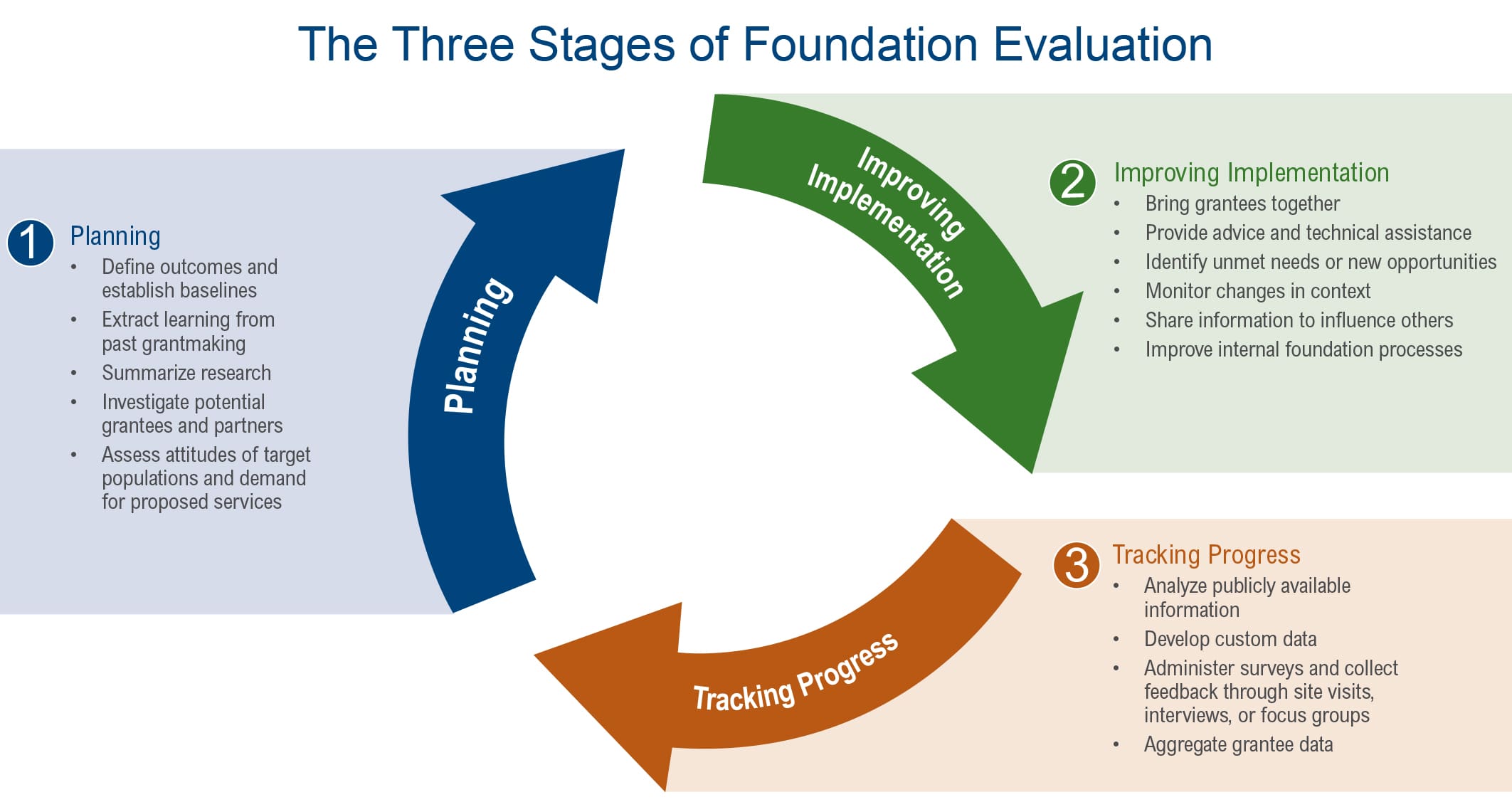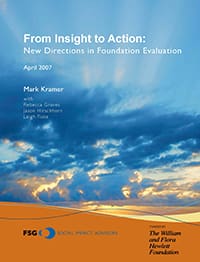The field of philanthropy is undergoing a fundamental transition and is moving toward more performance-centered and forward-looking evaluation approaches that provide foundations and grantees with timely information and actionable insights. Based on nearly 100 interviews with foundation leaders and evaluators, FSG’s research illustrates major trends and best principles with real-life examples of successful evaluation efforts. It also provides guidance to those seeking useful ways to incorporate evaluation into the work of their foundations.
Top Takeaways
- The traditional approach to evaluation in philanthropy is an impact assessment of past grants in order to provide accountability, demonstrate efficacy, and encourage replication. Today, many funders are shifting toward a timelier and more pragmatic process in order to enable grantors and grantees to make ongoing improvements in their work.
- Evaluation has proved most helpful when used to answer three interrelated questions addressing different stages of the grantmaking process: How can we plan our work better? How can we improve implementation? How can we track progress toward our goals?
- Several broad principles underlie effective evaluation practices, including creating the organizational culture and processes necessary to translate information into action; directly engaging key decision-makers; letting grantees take the lead; choosing the fewest and simplest measures; and using targeting and compelling methods of communication.
Listen to the Podcast


